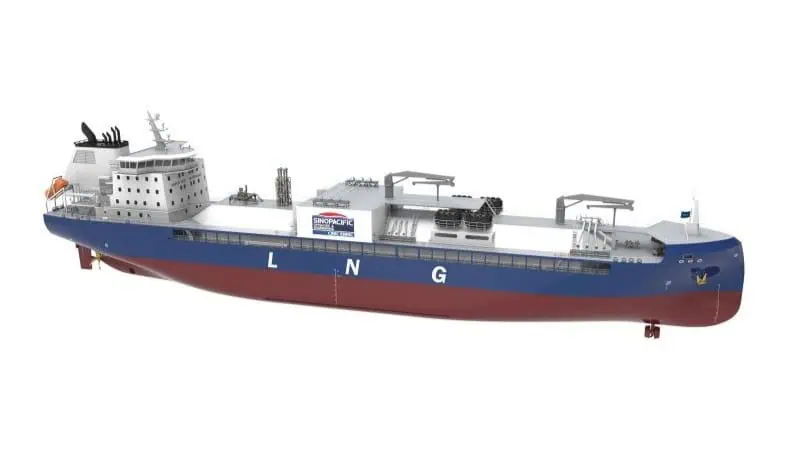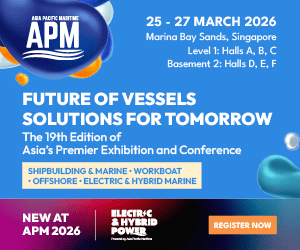SCHOTTEL has been awarded a contract to supply full propulsion packages for three new LNG bunkering vessels (LNGBV). Each vessel will be equipped with a controllable pitch propeller (CPP), a retractable rudder propeller (SRP), and a transverse thruster (STT).
The ships, with a loading capacity of 20,000 cbm, are currently under construction at the Chinese shipyard Nantong CIMC Sinopacific Offshore & Engineering Co. Ltd and are scheduled for delivery in 2026 and 2027.
Two vessels have been ordered by UK-based LNG bunkering provider Avenir LNG Ltd and one by Singaporean Vitol International Shipping Ltd. In addition, Vitol has signed a time charter agreement for one of the two vessels ordered by Avenir, starting in Q4 2026 and lasting for a period of seven years with options to extend up to ten years in total.
Each of the three vessels will be equipped with a SCHOTTEL ControllablePropeller type SCP 119 4-X, with an input power of 5,800 kW and a propeller diameter of 6,000 mm. With this main propulsion unit, the 159.9-metre-long and 25-metre-wide vessels will achieve a free sailing speed of up to 15.5 knots. The delivered type permits the full-feathering function, enabling the propeller blades to be turned into a low-resistance position if required. SCHOTTEL controllable pitch propeller systems are characterised by their outstanding performance in terms of propulsion efficiency and reliability. The SCP is designed to be both robust and user-friendly, guaranteeing minimum maintenance and thus a long service life. The flexibility and versatility of the SCP allow the propulsion power to be optimally adapted to the required operation profiles of the LNG bunkering vessels.
The propulsion packages also each include a SCHOTTEL Retractable RudderPropeller type SRP 380 R (1,300 kW with a propeller diameter of 2,200 mm). When extended, the SRP-R functions as a fully 360-degree steerable propulsion unit. It allows maximum manoeuvrability, high propulsion power and precise positioning. The thruster will be equipped with an 8-degree tilted propeller shaft, which reduces the interaction between the propulsion unit and the hull, resulting in increased propulsion efficiency. In cases where not all thrusters are needed, for example when changing location, the SRP-R can be retracted into the hull, reducing drag when travelling and vessel draught while berthing.
To further enhance the ships’ manoeuvring performance, each will be fitted with a SCHOTTEL Transverse Thruster type STT 2 FP (750 kW with a propeller diameter of 1,540 mm). The STT’s range of application extends from brief docking and casting-off in ports with only a limited number of operating hours per year to continuous operation under extreme load conditions in demanding positioning tasks. With this full propulsion package, the bunkering vessels will have unparalleled manoeuvring capabilities, which is particularly crucial for the handling of hazardous goods such as LNG in ship-to-ship bunker transfer.
The SRP-R and the STT will be equipped with SCHOTTEL LeaCon, a seal monitoring system certified by DNV. It offers safe and reliable protection against seawater contamination caused by operating materials. Separate seals to the seawater and to the gearbox side ensure that both incoming seawater and escaping gear oil are collected in an intermediate chamber. LeaCon is also used to monitor the condition of the seals, so operational wear can be detected at an early stage and unscheduled maintenance avoided. SCHOTTEL propulsion units equipped with the LeaCon system comply with stringent environmental requirements.
LNG is considered one of the most important alternative fuels today as it enables ship owners to reduce their environmental footprint at competitive prices. With the demand for LNG expected to grow in the coming years, these vessels will make a significant contribution to the security of supply and the decarbonisation of the global shipping markets.













